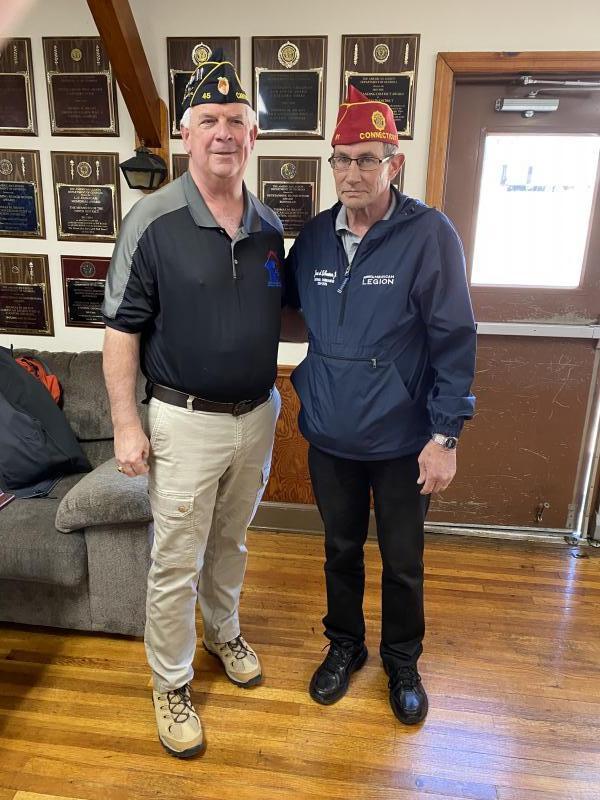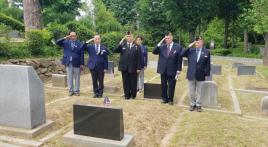Every year, the U.S. Department of Veterans Affairs conducts the nation’s largest analysis of veteran suicide rates. Unfortunately, the results are chilling: the department’s latest report found increasing rates. About 17 veterans commit suicide every day, a devastating figure we must address. The report reflects the fact that veterans are 1.5 times more likely to die by suicide than the non-veteran adult population. Over four times as many veterans of the post-9/11 wars have died by suicide than by war operations (Stripes.com, Dec. 18, 2024).
In 2022, there were 6,407 suicides among veterans nationwide. In Cherokee/Pickens County we suffered six veteran suicides, four of whom left behind children of varying ages and in some cases spouses as well. Surely, we had an issue we needed to address.
Working with the many veteran service organizations in Cherokee/Pickens County, the team of Jim Lindenmayer, Army combat arms veteran; Mike Satterly, Vietnam-era Air Force veteran and Josh Lear, Somalia combat Marine, from the Cherokee County Homeless Veterans Program, American Legion Post 45 and Post 316, came together to come up with a plan of action to reduce or prevent future veterans from committing suicide.
This team worked with Dr. Mathew Miller, head of the national VA suicide program. Discussions and Zoom meetings with Miller and his team started to provide potential actions that could be taken to help address what we were facing. Lindenmayer and Satterly attended a presentation by Dr. Kelly Posner of Columbia University, founder of the Columbia Scale of Suicide awareness. As the only two non-clinical attendees of the presentation, we asked if the Columbia Scale could be adapted to help non-clinical groups use the scale to help identify potential veterans who may be exhibiting suicidal or mental health tendencies. The answer was yes.
In addition to working with Miller and Posner, the team scoured both counties to get some level of confidence that local mental health practices could deal with veterans and the trauma many of them dealt with while in the service. What they found out was that there was a huge gap in local mental health professionals in dealing with veterans. The gap required a new way of addressing and working with veterans in crisis, as they are not willing to let others in when it comes to mental health issues. In talking to affected veterans, it was learned that they do not like therapists as a first step due to the stigma of admitting they need help. What developed was a veteran-first approach where our team became the first contact with
veterans in crisis, and then we would do triage as to where they needed to go next.
Veteran community overview:
Cherokee/Pickens County is home to over 18,000 veterans
We have identified over 350 veterans with some level if PTSD
40% of all homeless veterans we encounter have some type of mental health issue
We have encountered since 2023 over 20 female veterans who have been victims of domestic violence. Many of them have children.
We have worked with over 20 veterans, men and women, who have been victims of military sexual trauma (MST)
We have several veterans with TBIs
What developed was an outreach program that solicited veterans who needed help to pick up an outreach card. These cards and posters are placed at locations where they tend to visit such as Rally Point Bar and Grille in Woodstock. This was a low-key approach that was meant to get the veteran to call, email or text us so we could have an initial discussion. This action allowed us to lower the temperature of the situation as the veteran-to-veteran interaction became a trusted
and welcome conversation with others who understood military life.
The next step became triage so that veterans were handed off to the right level of mental health support. For instance, combat veterans and veterans suffering from MST were connected with Dr. Holli Kelly’s Vet Center team in Marietta. The Vet Center provides free and confidential services to eligible veterans and is a higher level of mental health support than
standard VA mental health care. Secondly, for those veterans who have suffered TBIs, we connected them directly to the
team at the Shepherd Center.
Our last piece of triage became the use of the National Crisis Line, which is 988. Since we have little to no idea of who, when or where a veteran in crisis may be, there is a need to have immediate interaction and support. Our team has been involved in many calls to the National Crisis Line over the years, and they do a great job.
With all of this focus and efforts by local veterans, we have been lucky not to have another veteran commit suicide in the last three years, while the rest of the nation's male veteran age-adjusted suicide rates increased 1.6%.
Some years ago, one of our politicians noted that “it takes a village.” While we subscribe to this adage, we feel it is more important to view this as, “it takes people who want to get involved to help others.”
For more information on finding out how to help a veteran in crisis, please go to our website at
https://www.cherokeehomelessvets.com/mental-health-coalit.
Jim Lindenmayer, member of the outreach program.
Free mental health and outreach programs by local veterans group pay off in combating veteran suicides
Canton, GA
June 23, 2025

Lindenmayer with National Commander LaCoursiere at January post Be the One briefing.

Copies of veteran-to-veteran suicide prevention outreach literature.
Submitted by:
Jim Lindenmayer



